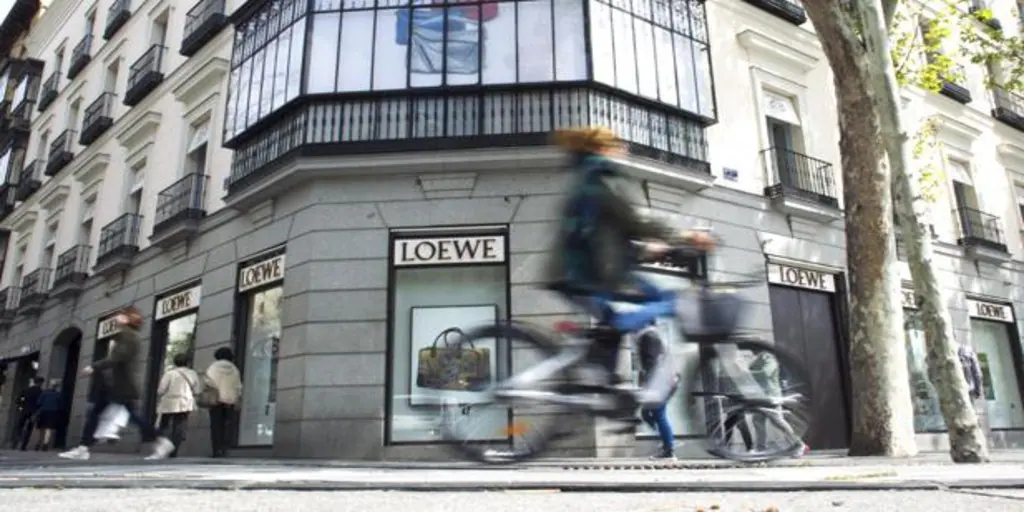MADRID
save
Tourism has been lacking and, as in so many other sectors, the Spanish luxury market has collapsed. Covid-19 has caused Spanish companies dedicated to high-end products to take a step back, just when they were growing the most. According to Cristina Martín Blasi, president of the employer association of Spanish luxury firms Luxury Spain, the sector will close the year in 5.2 billion euros (levels of 2015 and 23% less than last year), when 2019 marked record figures after exceeding 6,500 million in turnover.
But all this has also served to reinvent itself and win over the Spanish customer, who has responded to 45% of luxury sales in Spain. According to the Círculo Fortuny, which represents some of the great national firms dedicated to luxury in all its fields, digitization has had a lot to do with this. And it also comes to stay, although in some sectors it does not finish curdling. Either way, omnichannel has failed in 2020 avoid the crash for many businesses where the physical component is still essential to win over the customer.
Textile: collections are lost
“You only need to go around the Salamanca neighborhood and see the stores that have been left empty, to understand what the Covid-19 has caused in the sector,” the owner of Fulham, Pelayo Olazábal, told this newspaper with two stores in Serrano and Goya streets. The bulk of the map of the luxury textile trade in Spain is concentrated in a few “prime” areas, either between Serrano and Ortega Gasset in Madrid or on Paseo de Gracia in Barcelona, enclaves where about 75% of businesses depend on tourism from high standing. What has also caused the designers’ collections for this year to be lost. From the employer’s association of textile companies, Acotex, They estimate that in the luxury segment the loss of turnover could exceed 70%.
Jewelery sector: physical sale, essential
Other street markets, such as textiles, found their solution in the digital channel to avoid leaving their meter to zero at the end of the month during confinement. In the case of the jeweler, the effort to digitize was the same, but the good results did not come during or afterwards. Because in the interest of buying a piece of jewelry, -with the addition of high-craftsmanship pieces that handle prices of three and four figures- the physical experience in the purchase continues to be an essential part of it. And to add more fuel to the fire, some raw materials saw their price increase by up to 20% during the pandemic. A set of misfortunes that joins the bad start in the sector of the Christmas campaign that according to the president of the Spanish Jewelery Confederation, Milagrosa Gómez, represents 40% of the annual turnover.
Food: the gourmet is revalued
It has been one of the sectors that has best weathered the harshness of the pandemic. Especially at the beginning of the confinement. Because diners found in “gourmet” products the best ally to satisfy their refined appetites with closed restaurants. «Customers have traveled less and spent less on other activities, part of these saved budgets have been used to consume more valuable products at home “, details to ABC Pascual Campos, Commercial and Operations Director of Sánchez Romero supermarkets, specialists in” premium “food. In this case, the online channel has been another of the main protagonists.
Tourism: hotels on second-hand pages
ABC has already anticipated the situation of some luxury hotels, with owners even looking for buyers on second-hand websites. The pandemic has ended tourism and the type of client of these hotels in Spain comes in a large part from North America and Southeast Asia, geographical areas with a red light set to our country. In addition, it also hits other fundamental sectors in the luxury value chain in Spainto like the events. The director of MCI Spain, Sandrine Castres, estimates a 60% loss of turnover in the sector.
Real estate: operations in “stand by”
As the director of studies of Pisos.com, Ferran Font, explains, the big squares for luxury housing are dominated in Madrid by the Latin American buyer; by the European in Barcelona, while in other points with high demand in this category of assets such as the Costa del Sol, Arab customers are the ones who shop the most. All of them have been affected by the movement limitations derived from the pandemic and as a consequence hundreds of operations have been halted, while the national client keeps positions waiting to buy at a bargain price. The Spanish subsidiary of the real estate firm specializing in luxury housing, Barnes, estimates the loss of business this year at up to 40%.
See them
comments
– .

:quality(80)/cdn-kiosk-api.telegraaf.nl/6097fabc-378b-11eb-b254-0255c322e81b.jpg)
